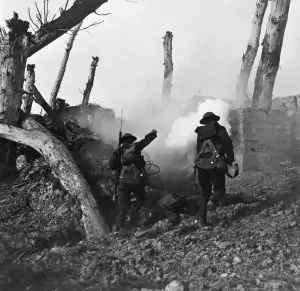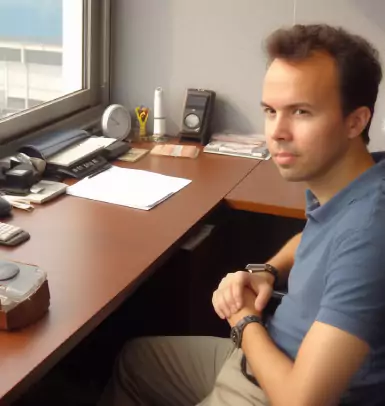 World War I spanned from July, 1914 until November 11, 1918. The War caused the deaths of over 17 million people. However, telling about the causes of the first world war is not so easy. There were a multitude of reasons that the War broke out. The major causes were defense alliances, imperialism, militarism, nationalism, and the assassination of Archduke Franz Ferdinand.
World War I spanned from July, 1914 until November 11, 1918. The War caused the deaths of over 17 million people. However, telling about the causes of the first world war is not so easy. There were a multitude of reasons that the War broke out. The major causes were defense alliances, imperialism, militarism, nationalism, and the assassination of Archduke Franz Ferdinand.

✅ AI Essay Writer ✅ AI Detector ✅ Plagchecker ✅ Paraphraser
✅ Summarizer ✅ Citation Generator
In 1914, there were mutual defense alliances between Russia and Serbia, Germany and Austria-Hungary, France and Russia, Britain and France and Belgium, and Japan and Britain. According to contributor Kelly Martin from ThoughtCo, “Austria-Hungary declared war on Serbia, Russia got involved to defend Serbia. Germany seeing Russia mobilizing, declared war on Russia. France was then drawn in against Germany and Austria-Hungary. Germany attacked France through Belgium pulling Britain into war. Then Japan entered the war. Later, Italy and the United States would enter on the side of the allies” (“The Top 5 Causes That Led to World War I”). As you can see, through mutual defense alliances, a chain reaction started that ended up in many lives lost.
Imperialism was rampant at the time at the time of the War, and only made the situation with the alliances worse. As stated by HistoryOnTheNet, “By 1900 the British Empire extended over five continents and France had control of large areas of Africa. With the rise of industrialism countries needed new markets. The amount of lands ‘owned’ by Britain and France increased the rivalry with Germany who had entered the scramble to acquire colonies late and only had small areas of Africa” (“World War One – Causes”). In other words, Germany wanted to keep up with British and French imperialism, and that exasperated the War.
In addition, before and during the War, many countries were in an arms race. Germany had the largest military force in the world in 1914, and England and Russia were the greatest rivals to German power. This race began to have greater and greater sway on political processes, especially public policy. This fueled the War into deeper depths of combat (Kelly, Martin).
Besides the arms race, there was also a race in the pride of nations, so to say. Nationalism began to crop up more and more through the turmoil happening in Europe at the time. According to HistoryOnTheNet, “The Congress of Vienna, held after Napoleon’s exile to Elba, aimed to sort out problems in Europe. Delegates from Britain, Austria, Prussia and Russia (the winning allies) decided upon a new Europe that left both Germany and Italy as divided states. Strong nationalist elements led to the re-unification of Italy in 1861 and Germany in 1871. The settlement at the end of the Franco-Prussian war left France angry at the loss of Alsace-Lorraine to Germany and keen to regain their lost territory. Large areas of both Austria-Hungary and Serbia were home to differing nationalist groups, all of whom wanted freedom from the states in which they lived” (“World War One – Causes” ). Thus, the breaking up of nations led to the development of nationalistic groups that vied for dominant positions on the world stage.
A more direct cause of the War was the assassination of Archduke Franz Ferdinand. A Serbian nationalist shot the Archduke of Austria on June 28th of 1914 as he was visiting imperial troops. With the help of Russia, Austria-Hungary declared war on Serbia almost immediately. Because of the alliances, Germany proceeded to declare war on Russia, and subsequently invaded France through Belgium. This action caused Britain to declare war on Germany. This demonstrates that a war can begin based on political ties.
World War I was the most devastating war anyone had witnessed at the time. Through intricate defense alliances, explicit imperialism, prideful militarism, passionate nationalism, and the ghastly assassination of Archduke Franz Ferdinand, World War I came into being. Knowing how such an atrocious war can start from these factors, one can feel fearful of our present and close future. We need to keep wary of current circumstances in order not to dive into another world war.
Works Cited
Kelly, Martin. “The Top 5 Causes That Led to World War I.” ThoughtCo, www.thoughtco.com/causes-that-led-to-world-war-i-105515.
“World War One – Causes.” History, 4 Sept. 2018, www.historyonthenet.com/world-war-one-causes-2/.
“Did Franz Ferdinand’s Assassination Cause World War I?” History.com, A&E Television Networks, www.history.com/news/did-franz-ferdinands-assassination-cause-world-war-i.
Follow us on Reddit for more insights and updates.





Comments (0)
Welcome to A*Help comments!
We’re all about debate and discussion at A*Help.
We value the diverse opinions of users, so you may find points of view that you don’t agree with. And that’s cool. However, there are certain things we’re not OK with: attempts to manipulate our data in any way, for example, or the posting of discriminative, offensive, hateful, or disparaging material.